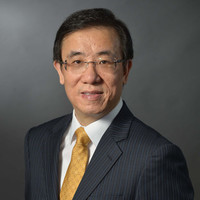In search of public service excellence

Public services touch every aspect of the lives of people around the world. Though normal life for many has changed since the global pandemic of early 2020, up until then, people everywhere frequently used public services on a daily basis – from renewing a business registration or a passport, to receiving post, exercising at a swimming pool, or visiting a public hospital.
These millions of service users also have opinions, both good and bad, on the quality of the public services they access. But how often are they asked about these opinions? And do these opinions help create changes and improvements to the services?
Generally, providers of consumer goods and services can rely on both customer satisfaction surveys and the market itself to provide performance indicators. They are incentivised by revenues and by repeat customers to either keep their products the same or make them better. Conversely, public service providers are often the sole providers of certain services: the issuance of personal identification documents, licensing, postal services, and immigration and customs controls for example. So what incentivises these providers to make their offerings better, and how can they evaluate the feedback and perceptions of the users?
Professor Bennett Yim, Area Head and Professor of Marketing, and the Associate Director of the Contemporary Marketing Centre of the HKU Business School, has conducted extensive research into service marketing strategies. Through his research, he discovered that the broad concept of “customer satisfaction” does not fully capture the complexities of the relationship between service users and the services provided to them. One of his studies demonstrated that measuring customer loyalty in addition to customer satisfaction enhances the effectiveness of customer relationship programmes. Putting this theory into practice, he applied a novel index model methodology accompanied by strategies to promote customer co-creation and loyalty in two multi-year projects which aimed to improve the performance of public services of a metropolitan city government in Asia.
The involvement of Professor Yim created significant changes to the design and execution of the two projects. Prior endeavours conducted by the same government involved simple evaluations of the satisfaction levels of service users. Professor Yim evolved these projects by introducing a consumer sentiment index model which enabled the government departments to perform continuous assessments of service delivery experiences. On top of measuring satisfaction levels, this new model also measured loyalty and trust, and incorporated “hedonic measures” – ways of measuring whether a person likes or avoids a particular thing – to capture more detail about the service users’ sentiments. The end result was a much more sophisticated model.
The projects engaged service users by conducting large-scale surveys to assess their evaluations of the services, developing a service excellence index (SEI) to benchmark performance across multiple departments. The lifecycle of both projects is illustrated in the diagram below:

The improved model allowed the capture of a much richer set of diagnostic information, which then allowed the participating departments to continuously identify key service excellence drivers, determine priority areas, and formulate and eventually implement effective service improvement strategies.
The new model served as a platform to engage the service providers and users to generate mutually beneficial outcomes. The providers could then concentrate on enhancing key strategic areas and benchmarking the effectiveness of the deliverables. At the same time, the citizens enjoyed improved services as a result of the co-creation process.
The SEI scores revealed the success of both projects: the overall performance of these public services exhibited an upward trend between 2013 and 2017. It is estimated that around seven million residents and more than 400,000 businesses employing over 6.8 million people benefitted from the improvements.
Professor Yim’s considerable contributions to the public sector exhibit how new models, new approaches and new ways of thinking can foster long-term improvements in areas that truly matter to society, making significant and long-lasting impacts on the lives of ordinary citizens.
Professor Bennett Yim is the Area Head and Professor of Marketing, and the Associate Director of the Contemporary Marketing Centre of the HKU Business School. His research areas include services marketing, marketing strategies, and brand choice modelling. He has been widely published in journals such as the Journal of Marketing, the Journal of Marketing Research, Marketing Science, the Journal of Service Research, the Journal of International Business Studies, the Journal of Retailing, the International Journal of Research in Marketing, and the Journal of Business Research, amongst others. His current research explores service crowding, anthropomorphised self-serving technologies, service-sales ambidexterity, and professional service conversations.
Professor Yim has over 20 years of experience teaching in undergraduate, MBA and Executive Development programmes at The University of Hong Kong, the Thunderbird School of Global Management, Rice University, and Purdue University.








